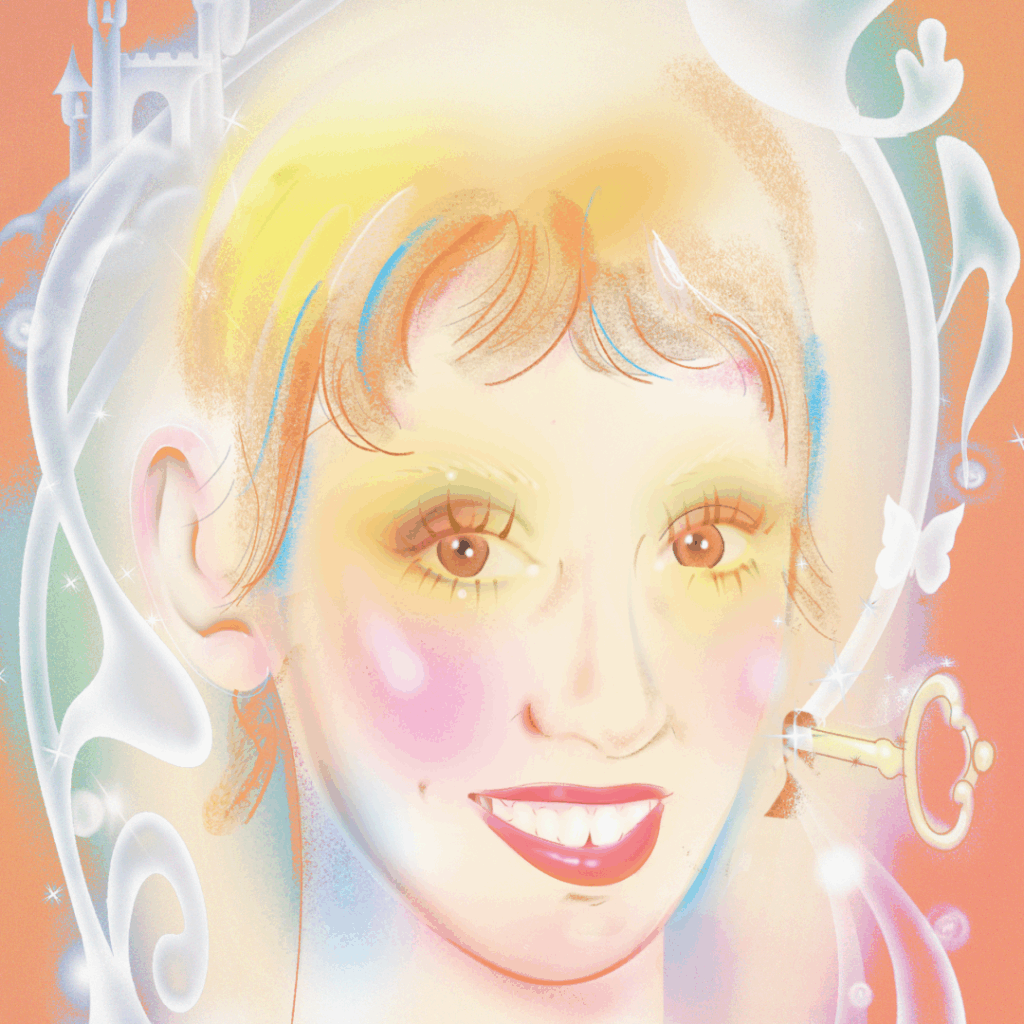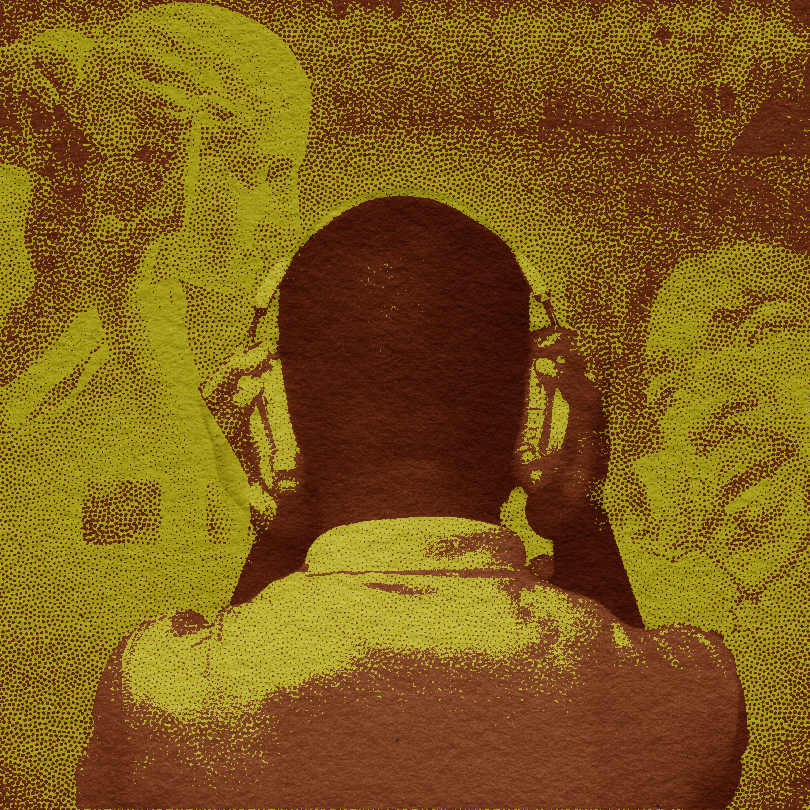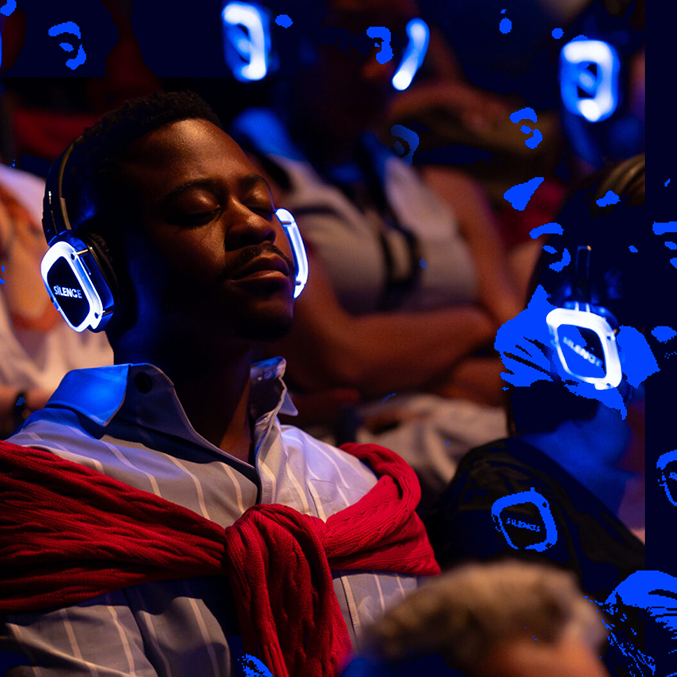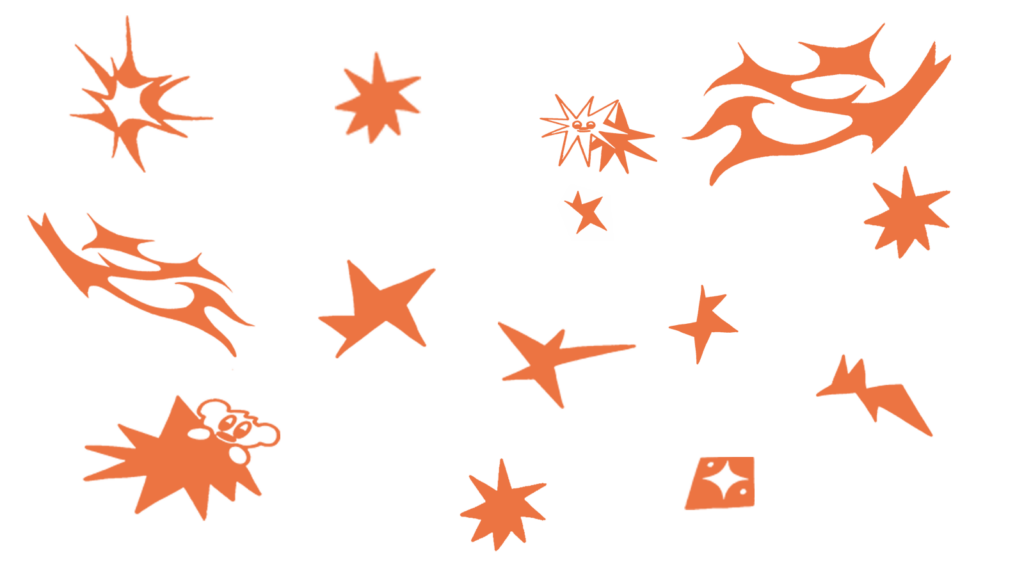The Signal Awards’ Search For ‘Great’ Podcasts
When fledgling artistic fields try to garner mainstream cultural coverage, they create awards for themselves. The Emmys were established to bring prestige to the burgeoning television industry in Los Angeles. The Grammys reportedly came about to appease musicians (and, really, their recording companies) who didn’t meet the requirements to qualify for a star on the Hollywood Walk of Fame. The Oscars — well, they were actually a union-busting gambit by Louis B. Mayer, but hey, it’s fun that they were originally broadcast over the radio, right?
Over the course of podcasting’s decades-long quest for respectability, several awards have sprung up, hoping to elevate the work of creators to the level of other lauded media shaping U.S. culture. But today, millions of podcasts compete for audience share while the industry continues its existential debate over what the word “podcast” even means, in form and function.
So these nascent awards face a hefty challenge: How do you determine what actually makes a podcast superlative in the modern era?
It’s a quandary that spurred the creation of the Signal Awards, honoring excellence in podcasting since 2023. Signal is the scrappy spinoff of an older honor, the Webby Awards, which first introduced podcast categories in 2017 and was quickly overrun by entries in the flourishing field. In 2022, Webby’s leadership decided that a separate independent award was necessary to set a standard of excellence across the full range of podcasting, and uplift more of the form. Thus, the Signal Awards was born.
But there are myriad genres and styles across the podcast universe. And there’s a galactic spectrum of resources available for production, talent, and marketing between the indie creator and a celebrity chart-topper. So how can awards even begin to categorize this chaotic, sprawling galaxy?
The challenge of deciding what’s best
Answering that question for the Signal Awards is its general manager, Jemma Rose Brown. She’s become obsessed with the seemingly simple question of what “best” means in a medium so vast and varied. “How do we compare apples to oranges, or kids shows to investigative journalism, in this case?” Brown asked herself. “What is the ‘mysterious alchemy’ of greatness?”
Fortunately, Brown doesn’t come to these questions empty handed. She’s been a stalwart player on the podcast scene since she began her career in 2011 at “Storycorps,” going on to Public Radio International, local Minneapolis station KFAI, and “The Moth,” before co-creating Brooklyn’s long-standing podcast festival, On Air Fest, where she served as the director of programming and partnerships for seven years.
While Brown joked that she’s “worked in podcasts since the dawn of time,” it was her work with On Air Fest that gave her the kind of experience that makes it possible to attempt to define the top of a sprawling ecosystem.
“I got to build a deep and robust network with all kinds of people that make podcasts, and think through how to adapt their shows to the stage,” Brown said. “I got to have a finger on the pulse of everything that was being made year over year. And when I left that job I knew I wanted to keep building up this community at the highest level.”
Brown reports having had thousands of conversations with producers, editors, sound designers, and voice talent, in order to understand what motivates them. Using what she’s learned, she is crafting the Signal Awards to offer something different to creators of all stripes through its unique judging process.
“You research and craft a show, you labor on it for months if not years, and then the culminating moment of production is to upload [an MP3 or video],” Brown said. “It’s just not a very emotionally rewarding experience, in comparison to the screening of a film in a theater with hundreds of people. It can feel a bit vacuous. I’ve talked to a lot of creators who have had an emotional drop-off after finishing a project and feeling like, ‘I can see the download numbers, but I just don’t feel like anyone is listening.’”
What sets the Signal Awards apart
For Brown, the approach taken by the Signal Awards Judging Academy members is the antidote to the lonely silo creators can find themselves in. Her careful curation of the members of the Judging Academy has yielded a cadre of high-level editorial representation across geography, genre, and scope of work.
“What the Signal Awards are able to do — and a point of pride in my work — is to create a tangible moment of, yes, really brilliant people listen to your work, and yes they thought it was special and worthy,” said Brown. “That’s not just important for the ego. That’s really important for persistence, for accountability to your team, for accountability to yourself, for recognition for your own labor, and for motivation to keep going.”
But once assembled, what does this esteemed Judging Academy actually do?
Brown likes to say that an award-winning podcast is best judged against its peers. That ethos guided how Signal built its criteria for evaluating entrants. “We’re creating a standard of excellence, and alongside the definition for each category, it’s important to have criteria that can be used to judge the full spectrum of the podcast ecosystem,” Brown said.
The greatest power of podcasting is its human impact, a show’s ability to dive beyond skin deep and stay with an audience long after an episode ends.
The Signal Awards criteria for excellence
The Signal Awards has three criteria for determining its winners.
The first is impact. Struggling with the amorphous nature of defining “best,” Brown mused about the challenge to Jennifer Ferro, president of KCRW. Ferro offered an answer, suggesting that the greatest power of podcasting is its human impact, a show’s ability to dive beyond skin deep and stay with an audience long after an episode ends. “A great podcast leaves an emotional residue,” said Brown. That lingering effect is the heart of the Signal Awards’s definition of greatness. One example Signal winner that got under Brown’s skin was “Marfa for Beginners” from Marfa Public Radio, due to how the episode evoked time stretching and mutating when you live in the desert. The Judging Academy gave it Gold for Most Innovative Audio Experience in 2024.
The second criteria is quality of craft, for which every production choice is evaluated, be it script writing, sonic identity, editing, sound design and scoring, or tracking narration to how the narrative unfolds. But not all shows need to have the same polish. This criteria seeks to assess whether the quality of the craft is elevating the artist’s intentions. “Importantly, I think different kinds of shows attempt to sound differently,” Brown said. “It’s great when a show sounds messy and made in the moment, because it’s intentionally being recorded in a restaurant, because that’s the concept.”
The final criteria is category fit — basically, did the entrant consider what their show or episode is up against in submitting it for a particular category, and is it indeed the correct fit? This year, the Signal Awards has new categories like local news, excellence in voice acting, and expanded video podcast categories. “It’s maybe the simplest piece of the puzzle, but an important one, because judges need to be able to compare like against like,” Brown said. For a category fit that stuck with her, Brown recalled last year’s Bronze winner for Best Experimental Podcast, “Eighty Thousand Steps” from Stitch Media Ontario, an immersive genre-bender about a family’s migration narrative that is literally propelled by the listener’s footsteps.
And the Signal Award goes to…
Once the members of the Judging Academy vet each entrant against the criteria and submit their rankings, the cumulative scores determine Bronze, Silver, and Gold winners. Signal bases its winners on a numeric threshold for each of the medal tiers, which can result in multiple winners for some tiers, or none at all, depending on the scoring.
After the winners are tallied, the judge-deemed Gold, Silver, and Bronze victors are then entered into the Listener’s Choice campaign, a two-week period in which the public votes to bestow the additional honor of “Listener’s Choice,” which last year amassed over 170,000 public votes.
But being the best isn’t just a gold star sticker. Brown knows the business benefits that come from creators’ work getting Signal’s stamp of approval. “I’ve talked to any number of people who have secured grant funding, or gotten their shows networked, or have added their winner badge to a sales deck and secured a deal with an ad sales network,” Brown said.
It’s that kind of tangible boost that motivates the work of the Signal Awards team. “Those are all things that give me purpose in my work, and give purpose to this award.”
The early entry deadline for the Signal Awards is Friday, May 9, 2025, for preferred pricing. Final entry deadline is June 27, 2025, and winners will be announced in October.
Phoebe Lett is a writer, producer, and performer based in Brooklyn.









